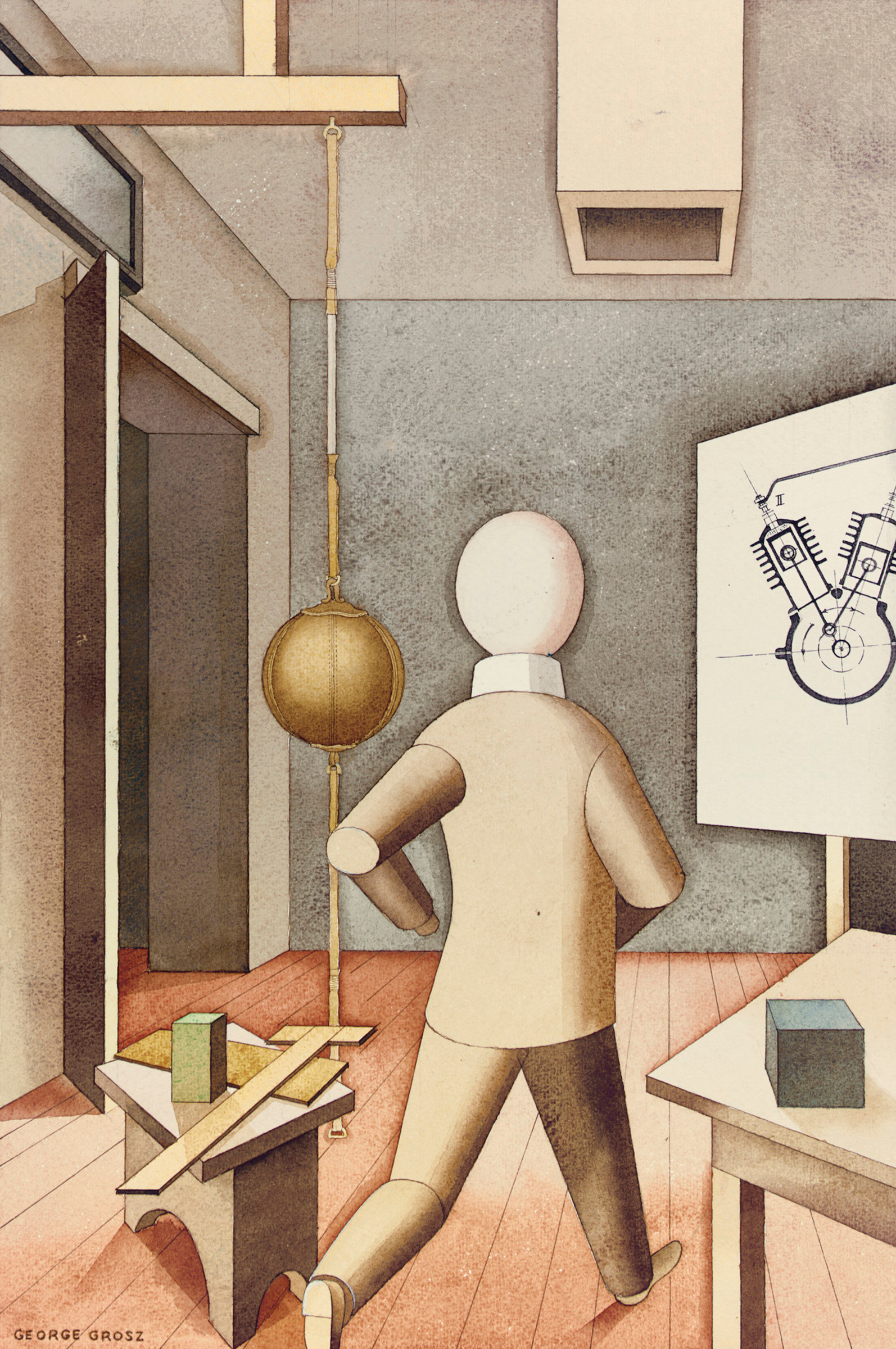“AT THE VIOLET HOUR…”
By:
June 5, 2024
A (pro- or anti-) science-, mathematics-, technology-, space-, apocalypse-, dehumanization-, disenchantment-, and/or future-oriented poem published during sf’s emergent Radium Age (c. 1900–1935). Research and selection by Joshua Glenn.

At the violet hour, when the eyes and back
Turn upward from the desk, when the
human engine waits
Like a taxi throbbing waiting,
I Tiresias, though blind, throbbing between
two lives,
Old man with wrinkled female breasts, can
see
At the violet hour, the evening hour that
strives
Homeward, and brings the sailor home
from sea,
The typist home at teatime, clears her
breakfast, lights
Her stove, and lays out food in tins.
Out of the window perilously spread
Her drying combinations touched by the
sun’s last rays,
On the divan are piled (at night her bed)
Stockings, slippers, camisoles, and stays.
I Tiresias, old man with wrinkled dugs
Perceived the scene, and foretold the
rest—
I too awaited the expected guest.
He, the young man carbuncular, arrives,
A small house agent’s clerk, with one bold
stare,
One of the low on whom assurance sits
As a silk hat on a Bradford millionaire.
The time is now propitious, as he guesses,
The meal is ended, she is bored and tired,
Endeavours to engage her in caresses
Which still are unreproved, if undesired.
Flushed and decided, he assaults at once;
Exploring hands encounter no defence;
His vanity requires no response,
And makes a welcome of indifference.
(And I Tiresias have foresuffered all
Enacted on this same divan or bed;
I who have sat by Thebes below the wall
And walked among the lowest of the dead.)
Bestows one final patronising kiss,
And gropes his way, finding the stairs
unlit…
She turns and looks a moment in the glass,
Hardly aware of her departed lover;
Her brain allows one half-formed thought
to pass:
‘Well now that’s done: and I’m glad it’s over.’
When lovely woman stoops to folly and
Paces about her room again, alone,
She smooths her hair with automatic hand,
And puts a record on the gramophone.
— Excerpt from part III (“The Fire Sermon”) of The Waste Land (1922). This section of Eliot’s poem draws connections between the mechanization and technological advancement in everyday life and the degradation of human dignity.
“When lovely woman stoops to folly” — The allusion here is to Oliver Goldsmith’s The Vicar of Wakefield (1766). Olivia has been seduced and abandoned by Squire Thornhill.
Eliot suggests in this poem that treating sex as an automatic and meaningless act is just as morally hazardous, dehumanizing the participants to the level of a human engine… like a taxi throbbing waiting.
RADIUM AGE PROTO-SF POETRY: Stephen Spender’s THE PYLONS | George Sterling’s THE TESTIMONY OF THE SUNS | Archibald MacLeish’s EINSTEIN | Thomas Thornely’s THE ATOM | C.S. Lewis’s DYMER | Stephen Vincent Benét’s METROPOLITAN NIGHTMARE | Robert Frost’s FIRE AND ICE | Aldous Huxley’s FIFTH PHILOSOPHER’S SONG | Sara Teasdale’s “THERE WILL COME SOFT RAINS” | Edith Södergran’s ON FOOT I HAD TO… | Robert Graves’s WELSH INCIDENT | Nancy Cunard’s ZEPPELINS | D.H. Lawrence’s WELLSIAN FUTURES | & many more.
